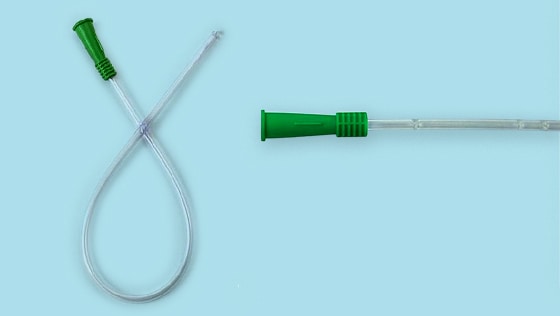How to get a good night’s sleep with a spinal cord injury

How to get a good night’s sleep
Sleep and SCI. I’ve heard the horror stories. I’ve experienced it from time to time myself. But I’ve discovered a number of things that help me to get a good night’s sleep.
1. Be tired.
Yeah, that’s obvious, right? It’s hard to sleep when you’re not tired. So tire yourself out by keeping your mind or body busy throughout the day. Read a book. Take a free online class. Go for a walk (or push or roll) outside. Play Sudoku or do a crossword puzzle. Find a hobby. Just. Stay. Busy. And no, social media and TV don’t count as “mental activity.”
2. Get comfortable.
Find a mattress and sleeping position that is both comfortable and protects your skin from breakdown. I typically wake up around 2 a.m. with lower back pain. So I turn on the lights, reposition myself on my other side, and get back to sleep.
3. Watch your fluid intake.
Once again, everyone will vary on this. And you may need to talk with your doctor. About an hour before getting into bed, I begin limiting my fluids. I try to be in bed at least a half hour before turning off the lights. One reason is that once my swollen feet are elevated, they “drain” as my circulation improves. I’ll catheterize right before turning the lights off. When I wake up around 2, I’ll cath again so I can make it until morning without my bladder getting angry. (I use a closed system BARD® TOUCHLESS® Plus Intermittent Catheter system, place it in a bin next to my bed, and empty it the next morning.)
4. Exercise.
Research shows that exercise can help with chronic insomnia (just Google “exercise and sleep”). I have found this to be very true for myself. Even after working all day, exercising helps stretch out my tight muscles and gets endorphins flowing, which relaxes me – and decreases pain. Are you not sure how to work out? Read the articles below for ideas.
5. Limit alcohol.
Alcohol may help you fall asleep more quickly, but research shows it won’t allow you to sleep through the night or get the restorative sleep we need. In addition, alcohol is a diuretic. It can make you go to the bathroom more. There’s no need to mess with bladder issues more than we already do.
6. Temperature control.
For higher level injuries, this can be difficult to manage. Even after 30 years I’m trying to find a perfect fit. I’ve got to be warm in order to fall asleep. But by the middle of the night I wake up hot – even overheated. I begin the night with layers of blankets that I can peel off as the night wears on. A modern day solution is a thermostat that you can schedule. In addition to keeping my thermostat set a bit warmer until after the typical time I’ll be asleep, I often tell Alexa to turn the temperature down during my middle-of-the-night wakeup routine. It helps me sleep comfortably until the alarm goes off.
7. Have a normal bedtime.
Keeping a normal schedule is helpful. For me, 10:30 is “lights out” when I’m getting up early the next morning (which is basically every day). If you have trouble sticking with a set time, try using an app that will block you out of your phone or social media a half hour before bedtime. (In all honesty, just writing that makes me anxious. But therein lies the problem.)
8. Keep a nighttime routine.
Some people can get into bed and go to sleep immediately. Congratulations if you are one of those people. But I’ve learned that I need to slow down and relax before going to sleep. If my mind is spinning with the to-do list for the next day, I write those things down. It calms me and my brain. Once I’m in bed, I love to read. Sometimes I journal. And, in all honestly, sometimes I’ll jump on social media. But quiet time for me is a must. Finally, try not to make TV or social media a part of that routine; research shows it can prevent deep sleep.
If you are a troubled sleeper, I hope some of these suggestions might help you in getting a good night’s sleep.
View full article at Bard Care
This article is from our Bard Care community of people from all walks of and wheels of life. Read more stories.
Get to know Liberator™
-
How we serve our customers differently
We’re more than just medical supplies. Learn how we provide the services you need to find the best product for you.
-
Catheter Tips & Guides
Fit, comfort, discretion —with catheter care, you probably have a lot of questions. Our Tips & Guides is a great resource.
-
Contact a specialist
Our specialists are trained to address every delicate question or concern.
Call now: 855-948-3319






